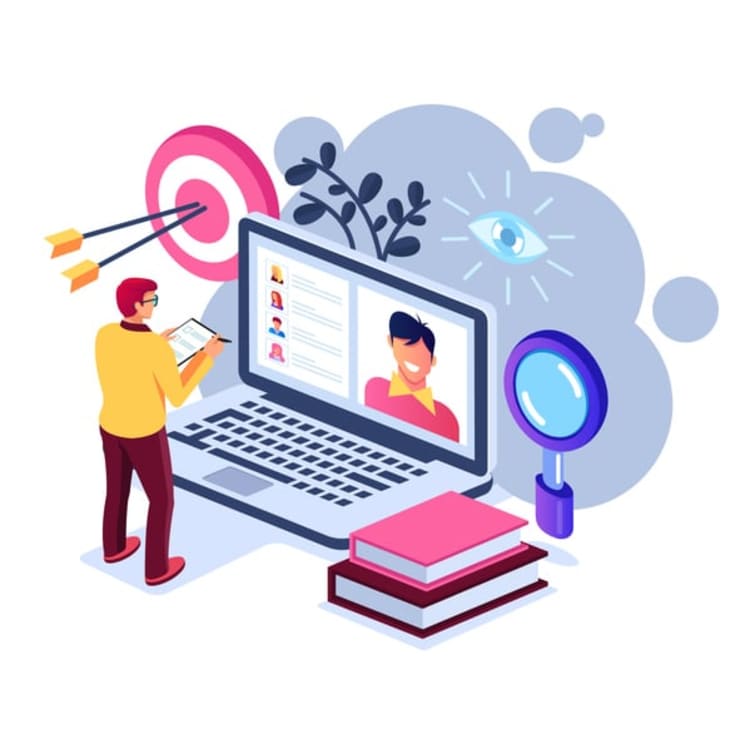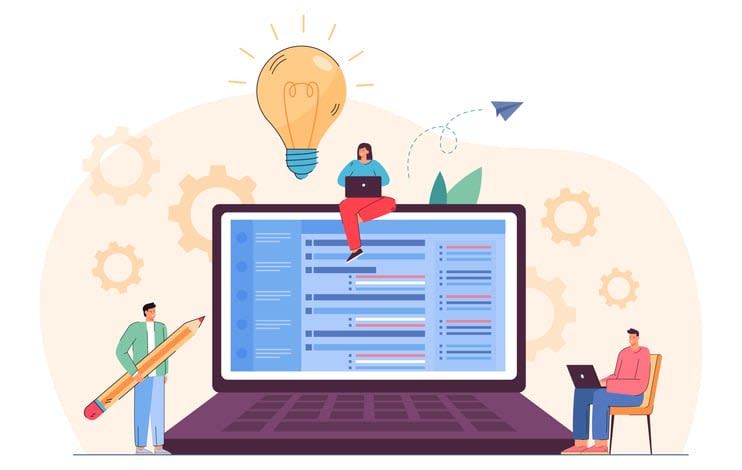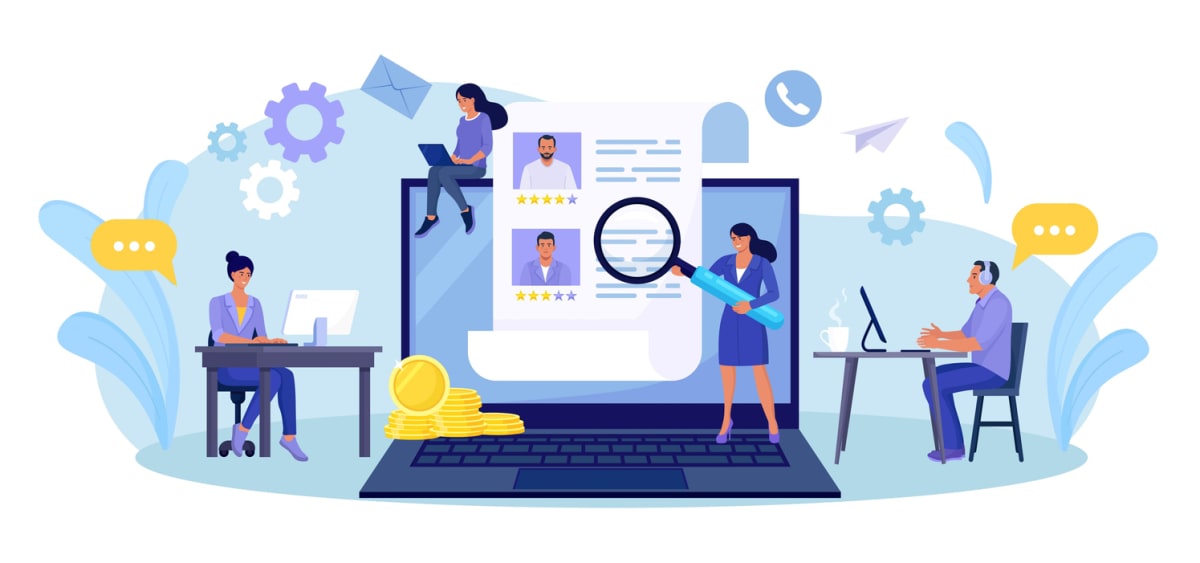Human Resources has evolved from an administrative function into a strategic driver of business success. Today’s HR professionals go beyond hiring and benefits, aligning people strategies with company goals while shaping culture, leadership, and collaboration. As automation and workplace demands continue to change, organizations increasingly rely on HR Business Partners and People Teams who understand the business, support employees, and adapt creatively to new challenges.
The changing HR landscape and new challenges
Companies today rely on software for many manual tasks, such as data entry or bookkeeping, and workers are no longer necessary for these positions. However, organizations must adopt smarter recruitment strategies to attract employees with the skills needed to analyze, interpret, and act on the data generated by automation software.
HR specialists will need to hire employees with these new skills or develop the talents of employees whose jobs were taken over by automation. It is essential to understand and navigate the process of change to successfully adapt to automation and evolving industry demands.

Introduction to Human Resources
Human Resources (HR) is the backbone of any successful business, playing a crucial role in driving growth, supporting employees, and shaping a positive workplace culture. Within HR, people partners are responsible for building strong employee relations, ensuring compliance with labor laws, and supporting both employees and business leaders as they navigate the unique challenges of today’s fast-paced work environment. The term people business partner is often used to describe this strategic HR role, which involves consulting with leadership and aligning organizational objectives with people strategies.
People partners combine strong communication, empathy, and problem-solving skills with a deep understanding of company culture and business goals. They focus on improving employee experience, supporting leadership, developing talent, and ensuring compliance, while helping organizations grow through adaptability, succession planning, and people-centered strategies.
Vital roles in today's HR environment: HR business partner and people partner
In today’s HR environment, there are two vital roles.
HR business partners handle hiring, benefits, and professional development, but their primary focus is on organizing employees, hiring, and developing strategies to meet the company’s goals. HR business partners are also increasingly involved in data-driven decision-making to guarantee HR initiatives support the company’s goals.
An HR people partner focuses on employees by creating a positive workplace and providing the support they need to perform at their best. Workplace wellness affects productivity, and along with healthy work environments and strong company culture, it is essential for employee retention, performance, and overall organizational success.
People Operations is the department responsible for overarching HR initiatives and programs, and it often works closely with People Partners on both strategic and operational HR activities.
Here is a closer look at how these HR roles benefit a company.
.jpg?tx=c_scale,w_750,h_567)
HR business partner (HR BP)
What is an HR business partner?
An HR business partner handles hiring, employee relations, benefits, pay, professional development, and compliance management. Their focus is on finding, managing, and developing the employees the company needs to achieve its long-term goals and compete in its industry, while ensuring the quality of talent aligns with company standards and objectives.
Without a specialist in this position, a company may have compliance issues, redundant employees, unqualified workers, and other inefficiencies. These problems can affect the company’s ability to compete and harm its bottom line.
Responsibilities and skills of an HR business partner
Here is a closer look at the responsibilities of HR business partner jobs.
- Analyze performance relating to business goals.
- Check compliance to limit employment-related liability risks.
- Draft employee policies that meet compliance and strategic needs.
- Identify and facilitate professional development to meet current and future needs.
- Communicate with company management and stakeholders to understand long-term plans and explain how you plan to meet those needs.
- Assess the efficiency of the current office organization, workflow, and project management in relation to performance and company strategies.
An HR BP also manages employee relations, including settling disputes and dealing with complaints.
An HR business partner needs specific skills and training to handle the evolving challenges of the job.
- Analytical thinking to assess performance and long-term strategy
- Creative problem-solving for modern workplace challenges
- Knowledge of employment law and compliance
- Strong organization and communication skills
- Mediation, accountability, and a focus on continuous improvement
HR business partner jobs typically require a bachelor’s degree in human resources or business. You can also pursue an MBA or certification from a professional organization like the Society for Human Resources Management (SHRM).

People partner
People partners also guarantee that employees and HR strategies support the company. In addition, they play a key role in supporting associates at all levels of the organization. However, in most cases, people partners focus more on supporting employees and creating a workplace culture that increases productivity, worker retention, and positive workplace culture.
Responsibilities and skills of a people partner
Here are the responsibilities of someone in a people partner role.
- Lead initiatives and act as a point of contact for people-related issues, working with managers and team leads to address motivation and culture issues, plan training, and deal with talent gaps.
- Create plans for professional development and work with departments to facilitate training.
- Communicate directly with employees to define and solve problems causing a negative or unproductive workplace.
- Assess workplace performance and find issues hampering productivity.
- Adopt strategies to boost team morale, encourage employee retention, and build a positive workplace culture.
- Align with managers and people leaders to ensure unified support for employees and effective implementation of change initiatives.
People partners support diversity, legal compliance, and employee-friendly policies while working closely with leaders and teams. They combine strong communication and relationship-building skills with analytical thinking, advocating for employees and driving positive change in fast-moving workplaces.

HR business partner vs. people partner: key differences
The responsibilities of HR business partners and people partners overlap in some areas. However, these roles have some key differences that are essential for HR professionals to understand.
- Focus and objectives. An HB BP focuses on supporting the company’s strategy and ensuring compliance with HR plans and operations. In this position, success depends on whether or not the company achieves its goals. People partners focus more on employee performance and measure their success in terms of worker retention and positive office culture.
- Required skills and competencies. Required skills and competencies. Both jobs require strong analytical skills and a solid understanding of business operations, including synchronous and asynchronous communication in remote work. HR Business Partners rely more on strategic thinking, legal knowledge, and business analytics, while People Partners excel in relationship building, communication, and employee relations.
- Scope of influence within organizations. In many companies, HR business partners have more influence over managers and executives and workplace policies. However, people partners play a more important role in morale, employee relations, and the day-to-day organization of teams and departments. Both roles must also be prepared to support leaders and employees during moments that matter most to the organization, such as key transitions, critical issues, or major changes.

Choosing the right role for your HR career
Which HR specialty is the best choice for you? It depends on your career plans, skills, areas of interest, and previous job experience.
An HR business partner job may be a better fit if you have a strong understanding of your chosen industry, excel in analytical and strategic thinking, and have an academic background in HR. If your interests lie in supporting professional development, virtual teamwork, and fostering positive workplace culture, a people partner position might be a better fit.
As the BLS points out, demand will increase across all HR specialties. However, companies may outsource some of the work to consulting firms, meaning that people with specialized skills in either area will be in higher demand than HR generalists.

Performance management and impact
Performance management is a cornerstone of effective HR partnership, directly influencing business objectives and organizational success. Both HR Business Partners and People Partners are instrumental in designing and executing performance management processes that support the company’s goals and foster a positive workplace culture.
These HR professionals work closely with managers and employees to set clear expectations, provide continuous feedback, and support regular performance evaluations. By using HR metrics and data-driven insights, they identify performance trends, address gaps, and design targeted solutions that support both business goals and employee growth.
Beyond evaluations, HR partners play a key role in guaranteeing policy compliance, managing change, and strengthening employee relations. By creating an environment where employees feel supported, motivated, and aligned with company objectives, they help improve retention, boost performance, and build a resilient, high-performing organization.
Summary
Human Resources has evolved into a strategic powerhouse, playing a central role in shaping business success, employee experience, and workplace culture. As organizations adapt to automation, remote work, and changing workforce expectations, HR Business Partners and People Partners have become essential in aligning people strategies with company goals.
While HR Business Partners focus on strategy, compliance, and workforce planning, People Partners prioritize employee well-being, engagement, and culture. Together, they support leaders, empower employees, and drive performance through data-driven insights, strong relationships, and thoughtful planning. Understanding the differences between these roles and how they work together can help organizations build resilient teams and help HR professionals choose a career path that matches their strengths in today’s evolving workplace.





